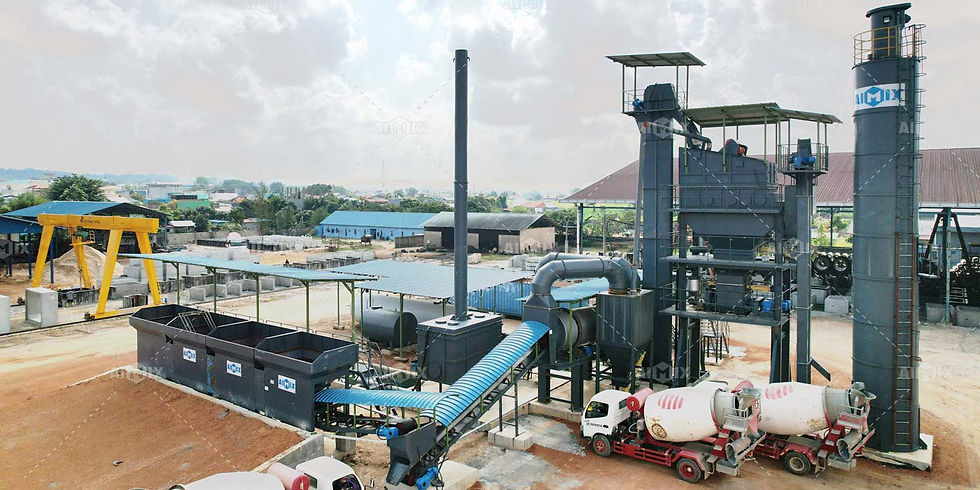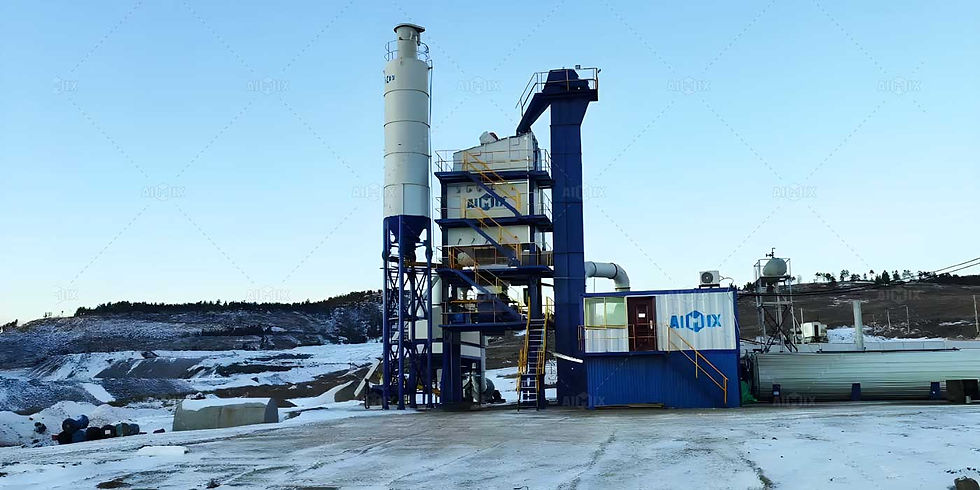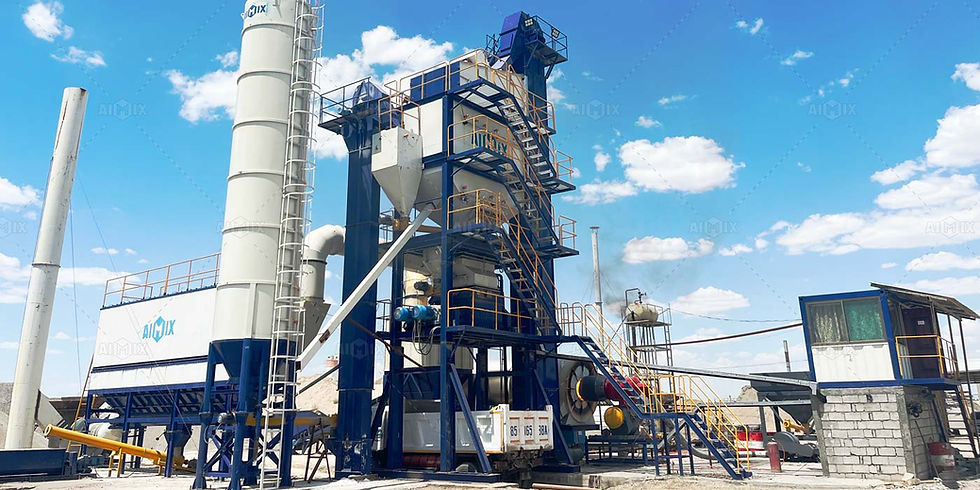How to Select an Asphalt Plant for Small-Scale Urban Roads Producing 50–80 t/h with Minimal Environmental Impact?
- aimixglobal5
- Aug 21, 2025
- 3 min read
Urban road construction in densely populated areas presents unique challenges. Contractors must balance productivity, cost, and environmental responsibility while meeting strict project deadlines. Choosing the right asphalt plant for sale for small-scale roads producing 50–80 t/h can significantly impact project efficiency and compliance. This guide provides practical insights to help contractors select an optimal plant, minimize environmental impact, and ensure high-quality road surfaces.

Understand Your Project Requirements
Before selecting a plant, evaluate your project's specific needs. Consider the road length, width, expected traffic load, and construction timeline. For small urban roads, plants with a production capacity of 50–80 t/h are typically sufficient, but other factors also influence the decision.
For instance, urban areas often have limited space, strict noise regulations, and nearby residential zones. These constraints mean a compact, low-noise, and low-emission plant is preferable. Therefore, understanding your project environment and material demands sets the foundation for a suitable plant choice.
Choose the Right Plant Type
There are mainly two types of asphalt plants suitable for small-scale urban roads: drum mix plants and batch mix plants. Each has its advantages, and your choice depends on production flexibility and space availability.
Drum Mix Plants
Drum mix asphalt plant can provide continuous production, which ensures consistent asphalt quality and efficient output. They are ideal for projects that require steady material supply without frequent changeovers. Moreover, modern drum mix plants have advanced emission control systems, reducing dust and gas release, which is crucial for urban settings.

Batch Mix Plants
Batch mix plants produce asphalt in defined batches, offering precise control over mix composition. This allows contractors to adjust recipes for different pavement layers, improving durability. While the batch type asphalt plant can take slightly more space, many modern designs are compact and designed for minimal environmental impact.
Considering both plant types, contractors should evaluate site space, production continuity, and mix flexibility. A well-informed choice ensures efficiency without compromising urban regulations.
Prioritize Environmental Considerations
Urban projects demand plants with minimal environmental footprint. Look for features like:
Advanced dust collection systems to prevent particulate emissions.
Low-noise components and soundproof enclosures.
Efficient fuel consumption to reduce carbon emissions.
Option to use recycled asphalt materials.
These factors not only comply with local environmental laws but also enhance community acceptance. Selecting a plant with strong environmental performance ensures smooth project approval and reduces potential delays.

Consider Mobility and Installation
Space constraints in urban areas often limit plant installation. Mobile or modular plants provide a flexible solution. They can be relocated within the project site or between different small-scale projects, reducing setup time and cost.
Furthermore, mobile plants allow for temporary placement near construction zones, which decreases transportation distance for asphalt and minimizes road traffic disruption. This flexibility is particularly valuable in urban road projects where site access can be restricted.
Assess Operational Costs and Support
While initial investment is important, contractors must also consider operational efficiency. Evaluate fuel consumption, maintenance needs, and labor requirements. Plants with automated control systems can reduce human error and increase consistency, translating to long-term savings.
Additionally, local technical support, spare parts availability, and training services can make a significant difference. Choosing a supplier with strong local presence ensures quick problem resolution and minimizes project downtime.

Conclusion: Make an Informed Decision
Selecting the right asphalt plant for small-scale urban roads requires careful evaluation of production capacity, plant type, environmental impact, mobility, and operational costs. By understanding project requirements and prioritizing eco-friendly, efficient solutions, contractors can achieve smooth construction, high-quality pavements, and regulatory compliance.
At AIMIX, we provide compact, low-emission asphalt plants producing 50–80 t/h, designed specifically for urban road projects. With advanced technology, flexible installation options, and dedicated local support, we help contractors complete projects efficiently while minimizing environmental impact. Contact us today to find the optimal asphalt plant for your next urban road project.



Comments